The increasing Euro-scepticism in Poland
- Published
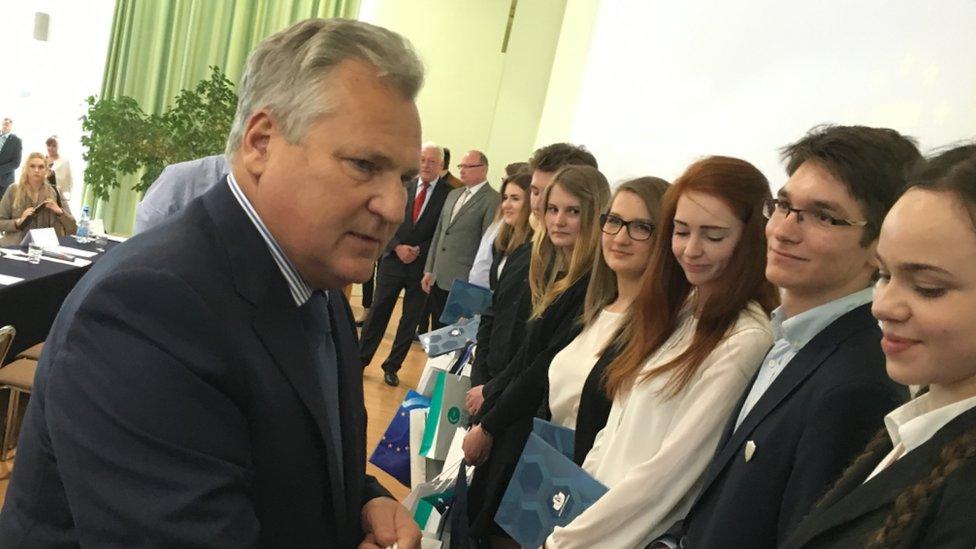
Aleksander Kwasniewski was president of Poland between 1995 and 2005
Perhaps it was the rain falling on the Polish spa city of Sopot, but the celebrations to mark Europe Day at the local university seemed subdued.
Or perhaps it was the message that the students were hearing from the keynote speaker, Poland's former president Aleksander Kwasniewski.
In 2004 he had led the country as it joined the European Union; a time of celebration and fireworks that I had been there to witness.
But the mood in Poland is different now and the former president's focus was on the challenges facing the EU. At the top of the list: a possible Brexit.
"It would be very dangerous," he tells me afterwards, "as there is already a complicated momentum in the world and I'm afraid that Brexit would bring about a disintegration of Europe."
Polish politicians of all stripes seem nervous about Britain leaving the EU. Many speak darkly about it ending not just an era, but maybe the European Union itself; a club they fought so hard to join.
There are fears of the practical consequences too.
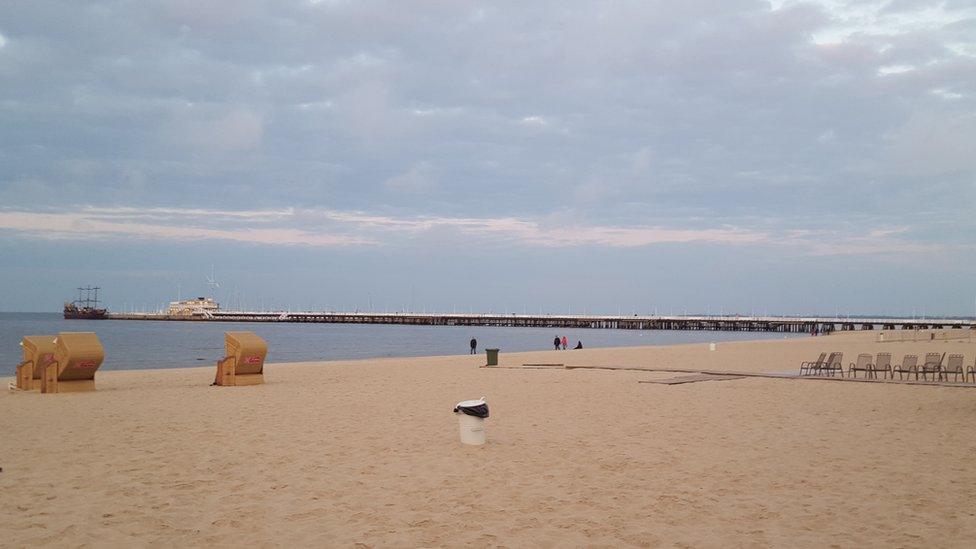
Sopot has the longest all-wooden pier in Europe
With more than a million Poles living in the UK and, in many cases, sending money home to their families, Polish officials are concerned that a new economic burden could be placed on their country.
'Strained relations'
Ironically for Poland, the UK referendum comes at a time of particular frostiness in its relationship with the European Union.
Ever since the conservative Law and Justice Party came to power last year, relations between Warsaw and Brussels have become strained.
The new government's decision to make changes to the Constitutional Court has raised not just eyebrows, but red flags at the European Commission.
After making a preliminary investigation, the Commission is now threatening further action, warning that Poland may be in breach of a fundamental principle of the EU: the rule of law.
Poland: Fresh anti-government protest in Warsaw
Poland's Constitutional Court clashes with new government
The UK's EU referendum: All you need to know
This, like a potential Brexit, is unchartered territory for the European Union.
Yet on the surface, EU membership appears to have been a largely positive, even transformative experience for Poland.

The Gdansk shipyard gained international fame in 1980 when the trade union Solidarity was founded there
At the iconic Gdansk shipyard, the steel cradle of the country's anti-communist revolution, EU funds have helped the company to diversify into building wind turbines for countries around Europe.
'Brand new infrastructure'
"We get big support from the European Union and we are hiring new people," production manager Rafal told me on a recent tour of its vast construction hall.
And it goes beyond the shipyard.
"All the infrastructure here is brand new, from the airport terminals to the express roads, and it was supported by EU funds" according to Marcin Piatkowski of Invest in Pomerania, a group that encourages investment in the region around the Baltic Coast.

Countries that joined the EU in 2004
Cyprus
Czech Republic
Estonia
Hungary
Latvia
Lithuania
Malta
Poland
Slovakia
Slovenia

But University of Gdansk student Filip Heleniak, a member of the Law and Justice party, has a different view. He sees the fact that the EU decides which projects to support as a worrying loss of sovereignty.
"My personal views about the European Union are mostly negative," he explains, "and decisions about our foreign policy and economic policy are made in Brussels".
'Bit like Britain'
And Briton Martin Kitson, who has lived in Poland for 17 years, says that opinion is becoming more prevalent.
"People want to take back some of the powers they feel that they've given to Europe.
"They don't want to leave the European Union, but there are a lot of people who want to renegotiate the relationship," he says.
"It's a bit like Britain, really."
Adding to the suspicion of Brussels is the migration crisis. Poland agreed to take in several thousand refugees as part of the EU redistribution plan drawn up last year, but only a few hundred have arrived so far.
Even so, there are growing calls for a brake to be put on the process.
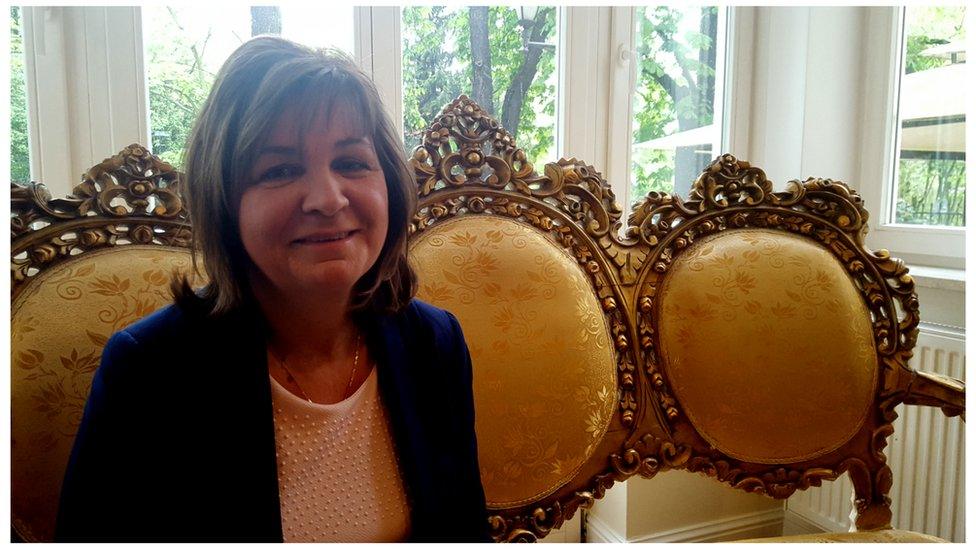
Malgorzata Zwiercan believes Poland should tighten its borders
"The most important thing is the safety and security of our state," says local MP Malgorzata Zwiercan.
"We need to tighten our borders and verify whether migrants are refugees or economic migrants," she tells me.
"It's not a good solution that Brussels is scaring member states and imposing penalties for not accepting the migrants."
She was elected to parliament from Kukiz 15, a populist movement led by a maverick rock star, which scores well with the under-30s.
'Migration a non-issue'
And it was noticeable that, while former President Kwasniewski wanted to talk about Brexit and instability in neighbouring Ukraine, the European issue that most of the students asked him about was migration.
He told them it was a non-issue; that a country of 38 million people could easily absorb a few thousand more.
But many in the hall looked unconvinced. They don't remember the fanfare and fireworks of twelve years ago, when Poland joined the EU, let alone the anti-communist struggle that preceded it.
Along the Baltic Coast it feels as though a new wind of realism - call it scepticism - is blowing into Poland's relationship with the European Union.
- Published7 May 2016
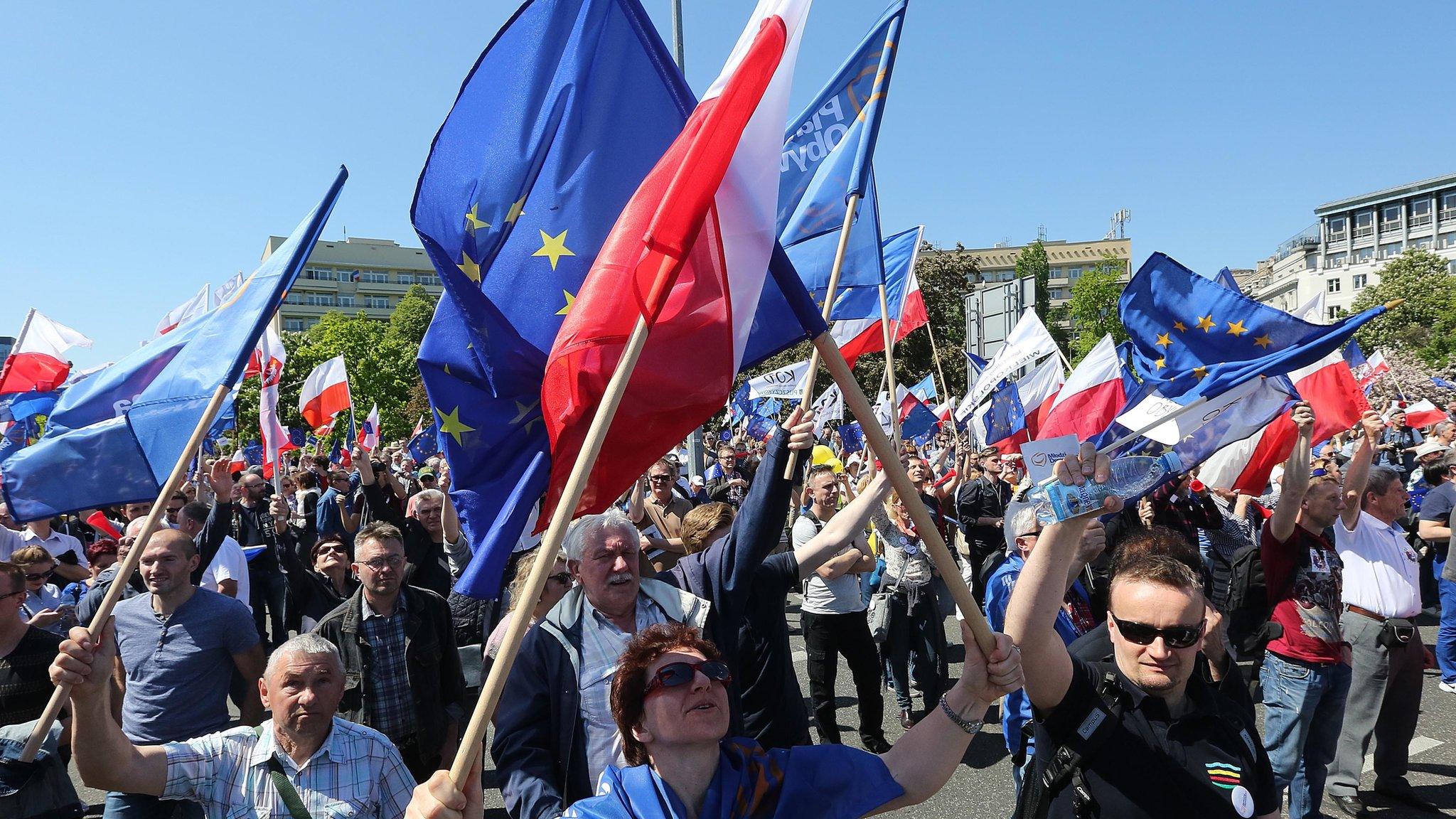
- Published9 March 2016
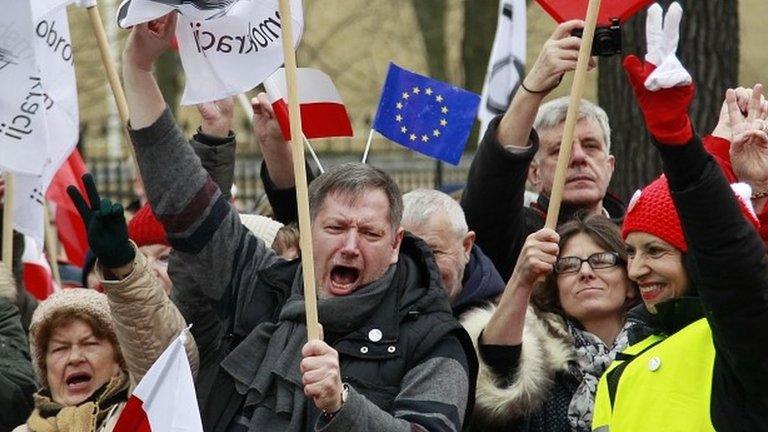
- Published13 January 2016
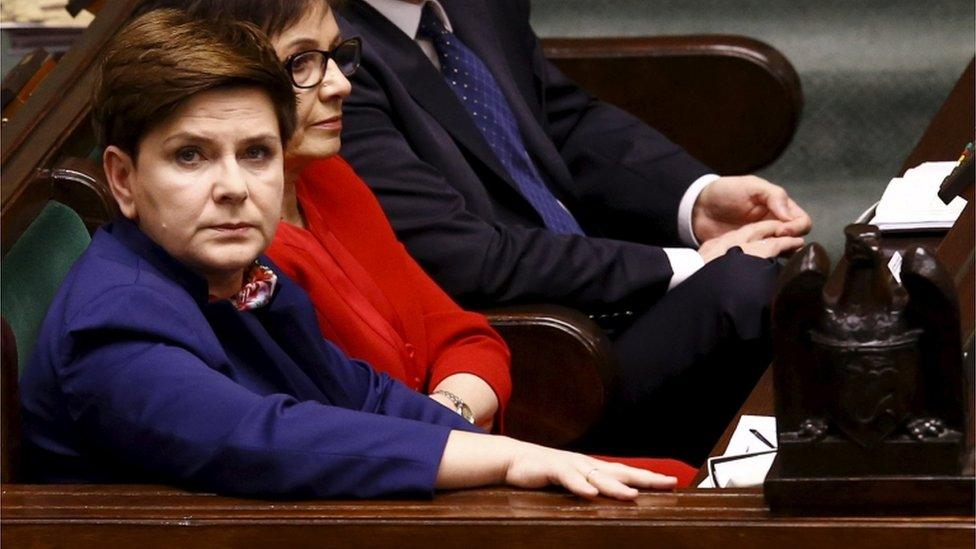
- Published2 December 2022

- Published30 December 2020
